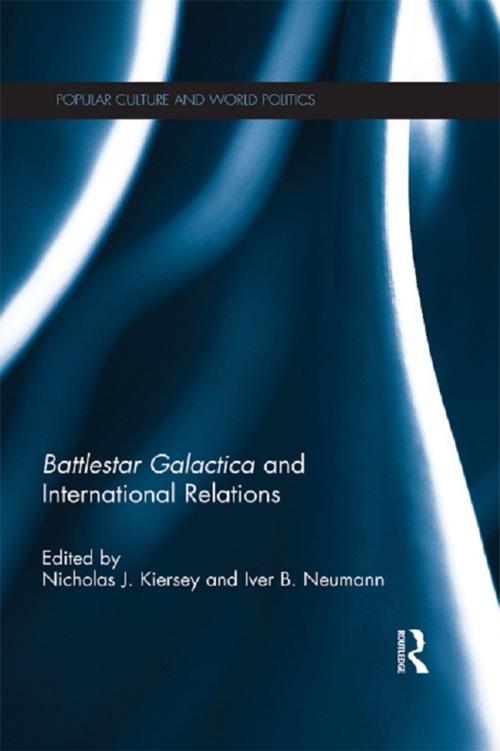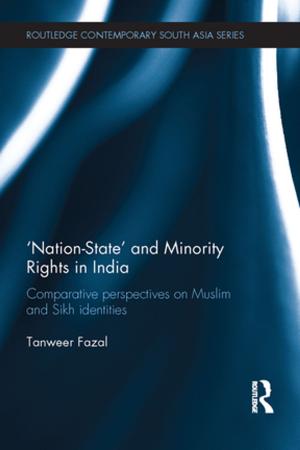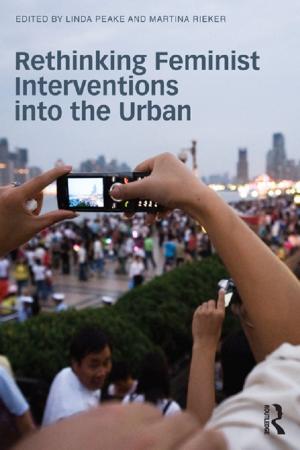Battlestar Galactica and International Relations
Nonfiction, Social & Cultural Studies, Social Science, Gender Studies, Political Science| Author: | ISBN: | 9781135089689 | |
| Publisher: | Taylor and Francis | Publication: | February 15, 2013 |
| Imprint: | Routledge | Language: | English |
| Author: | |
| ISBN: | 9781135089689 |
| Publisher: | Taylor and Francis |
| Publication: | February 15, 2013 |
| Imprint: | Routledge |
| Language: | English |
Looking at a television franchise like Battlestar Galactica (BSG) is no longer news within the discipline of International Relations. A growing number of scholars in and out of IR are studying the importance of cultural artifacts – popular or otherwise – for the phenomena that make up the core of our discipline.
The genre of science fiction offers the analyst an opportunity that cannot be matched by more mimetic genres, namely the chance to look at how sets of widely-circulating expectations of the social serve to constrain authors as they work to introduce as yet unexplored problematiques, the fantasy aspect in much of science fiction storytelling is premised simply on a material difference. As such, while the physical setting of a science fiction tale might appear novel, its imaginative life world will likely retain many elements of the world we already live in and which we can readily recognize as similar to our own. For Critical IR scholarship then, BSG presents an opportunity to examine how these purported homologies or elements of redundancy between the fantastic and the real have been drawn and perhaps to consider, too, whether the show can teach us things about world politics, its various logics and structures, which we might not otherwise be sensitive to. Tackling some of the key contemporary issues in IR, the writers of BSG have taken on a range of important political themes and issues, including the legitimacy of military government, the tactical utility of genocide, and even the philosophical implications of artificial intelligence technologies for the very category of what it means to be 'human'. The contributors in this book explore in depth the argument that one of the most important aspects of popular culture is to naturalize or normalise a certain social order by further entrenching the expectations of social behaviour upon which our mentalities of rule are founded.
This work will be of interest to student and scholars of international relations, popular culture and security studies.
Looking at a television franchise like Battlestar Galactica (BSG) is no longer news within the discipline of International Relations. A growing number of scholars in and out of IR are studying the importance of cultural artifacts – popular or otherwise – for the phenomena that make up the core of our discipline.
The genre of science fiction offers the analyst an opportunity that cannot be matched by more mimetic genres, namely the chance to look at how sets of widely-circulating expectations of the social serve to constrain authors as they work to introduce as yet unexplored problematiques, the fantasy aspect in much of science fiction storytelling is premised simply on a material difference. As such, while the physical setting of a science fiction tale might appear novel, its imaginative life world will likely retain many elements of the world we already live in and which we can readily recognize as similar to our own. For Critical IR scholarship then, BSG presents an opportunity to examine how these purported homologies or elements of redundancy between the fantastic and the real have been drawn and perhaps to consider, too, whether the show can teach us things about world politics, its various logics and structures, which we might not otherwise be sensitive to. Tackling some of the key contemporary issues in IR, the writers of BSG have taken on a range of important political themes and issues, including the legitimacy of military government, the tactical utility of genocide, and even the philosophical implications of artificial intelligence technologies for the very category of what it means to be 'human'. The contributors in this book explore in depth the argument that one of the most important aspects of popular culture is to naturalize or normalise a certain social order by further entrenching the expectations of social behaviour upon which our mentalities of rule are founded.
This work will be of interest to student and scholars of international relations, popular culture and security studies.















